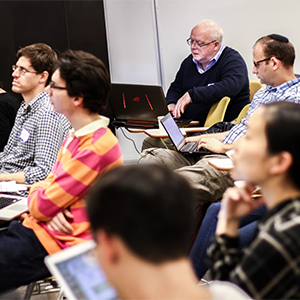
As a student and teacher of revolutionary literature and history, I believe that time is always ripe to talk to about the potential, performance, and process of structural change. What have social and political revolutions looked like over time? How do they manifest? When do they end? Questions along these lines are of deep concern to me, so I strive to incorporate them into all aspects of my academic work. When it comes to my teaching, the proliferation of open resources, and especially the many digital archives now available, has given me an opportunity to stage encounters with revolutionary moments for my students. These encounters strive to cultivate a critical consciousness, while also serving the overarching learning goals of our first-year composition course.
One such encounter happened last week, when my class learned how to write an annotated bibliography about the Haitian, French, and American revolutions. During a visit to the library, during which my students learned the language of Boolean searches and became familiar with using digital repositories and databases, I planned a class session where we would explore relevant materials in openly accessible archives, such as the Digital Public Library of America, Hathi Trust, Europeana, Digital Library of the Caribbean, NYPL Digital Collections, and Umbra Search.
Continue Reading Open Resources, Annotated Bibliographies, and the Age of Revolution on the Graduate Center Library Blog.
This post is the tenth in a series of posts by participants in the 2019 Open Pedagogy Fellowship. Fellows share insights to the process of converting a syllabus to open or zero-cost resources, and/or review a workshop from the Open Educational Resources (OER) Bootcamp held in mid-January. It is also published on our Open Pedagogy blog roll.



